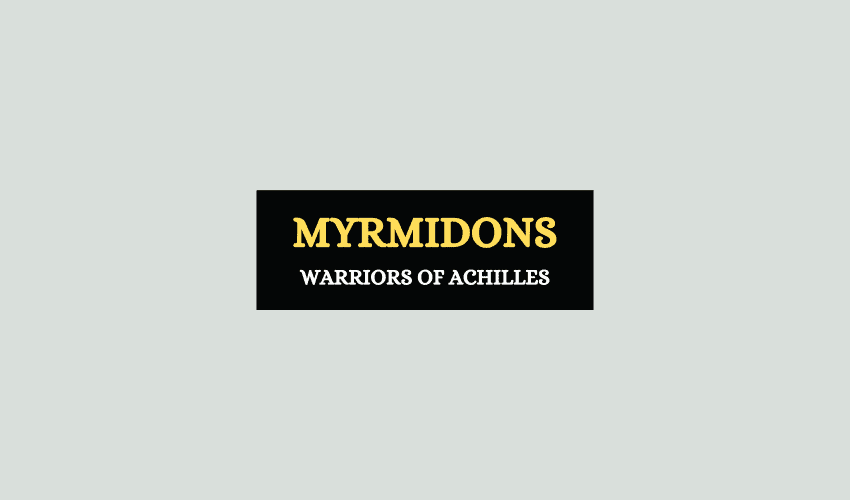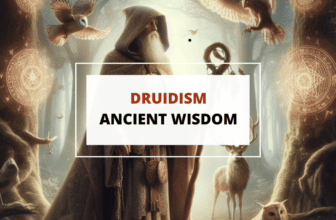
Table of Contents
The Myrmidons were a legendary group of people in Greek mythology who, according to Homer’s Iliad, were the fiercely loyal soldiers of the hero Achilles. As warriors, the Myrmidons were skilled, ferocious, and brave, featuring as Achilles’ loyal followers in almost all accounts of the Trojan War for which they became famous.
The Origin of the Myrmidons
There are several different stories about who the Myrmidons were and where they came from. It’s said that they were originally from Aegina, an island of Greece, and were created to repopulate the island after nearly all its inhabitants were killed due to a terrible plague.
In some versions of the myth, Myrmidons were the descendants of Myrmidon, the king of Phthiotis who was born to Zeus and a princess of Phthiotis, Eurymedousa. Zeus transformed himself into an ant and seduced the princess Eurymedousa after which she gave birth to Myrmidon. Because of the way she was seduced, her son was called Myrmidon, which means ‘ant-man’.
In an alternate version of the story, the Myrmidons were said to have been workers ants that lived on the isalnd of Aegina and were later transformed into humans. According to this myth, when Zeus, the god of the sky, saw Aegina, the beautiful daughter of the river god, he decided that he had to have her. He transformed himself into an ant and seduced Aegina, and named the island of Aegina after her. However, Hera, the wife of Zeus and queen of the gods, discovered what he was up to. When she found out about Zeus and Aegina, she was jealous and outraged. Because she was so angry, she sent a plague to the island so that all its inhabitants would be wiped out.
The terrible plague hit the island and as Hera had intended, everyone perished. One of the inhabitants on the island who was saved was Aeacus, the son of Zeus. Aceaus prayed to his father, asking him to repopulate the island. Zeus noticed that although every living thing on the island had died, the ants remained completely unaffected by the plague, so he transformed them into a new race of people known as the Myrmidons. The Myrmidons were as strong, fierce and unstoppable as the ants and they were also incredibly faithful to their leader, Aeacus.
The Myrmidons and the Trojan War
When Aeacus’ sons Peleus and Telemon left the island of Aegina, they took some of the Myrmidons along with them. Peleus and his Myrmidons settled in Thessaly where Peleus married the nymph, Thetis. A son was born to them and he became known as the famous Greek hero Achilles who fought in the Trojan War.
At the start of the Trojan War, the Greeks began a search for the greatest warrior in the world and when Achilles heard about this, he gathered a company of Myrmidons and went to war. They proved to be among the fiercest and best of all Greek warriors and were with Achilles as he conquered city after city and won every battle for nine years of war. During that time, Achilles had conquered twelve cities with the help of his Myrmidons.
Myrmidons in Popular Culture
The Myrmidons have been featured in many films and literary works. One of the most well known films in which they appear is the epic history war film ‘Troy’. In the film, Achilles leads the Myrmidons along with the rest of the Greek army to invade the city of Troy.
The Myrmidons in Greek mythology were well known for their extreme loyalty to their leaders. Due to this association, during pre-industrial Europe, the term ‘myrmidon’ began to carry the same connotations that the term ‘robot’ does now. Later, ‘myrmidon’ began to mean ‘hired ruffian’ or ‘loyal follower’. Today, a myrmidon is a person who carries out an order or command faithfully, without questioning or considering how inhuman or cruel it may be.
Wrapping Up
The Myrmidons were among the best warriors in all of Greece, known for their strength, bravery and black armor which made them look like just like the workers ants. It’s said that the influence of Achilles and his Myrmidons in the Trojan War turned the tide in favor of the Greeks.








